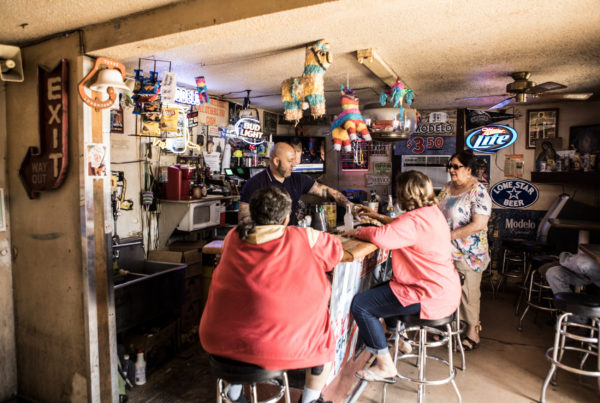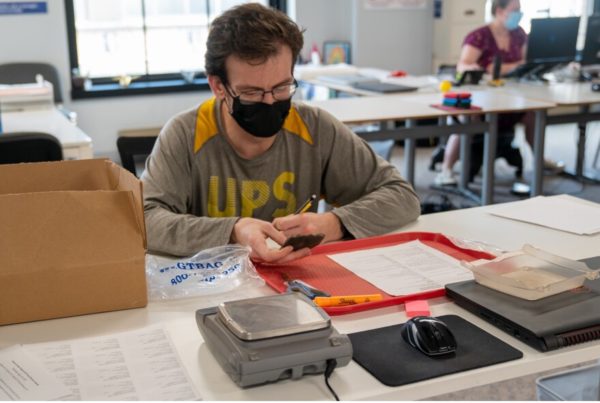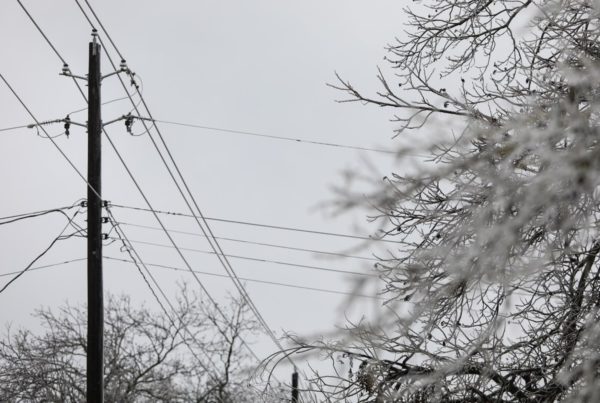A crisis is enveloping Texas’ Medicaid waiver system, which pays contractors to care for Texans with disabilities and special needs. Underfunded, understaffed and subject to poor accountability, a program for the state’s most vulnerable has instead led to tens of thousands of allegations of abuse and neglect – and, in some cases, death.
That’s what happened to 36-year-old Kristi Norris, who died in the care of state contractor D&S Residential Services. Her death and its attempted cover-up by two workers was the final indignity in a life under the Medicaid waiver system, where she was named as a victim in 38 investigations into abuse, neglect and exploitation.
Austin American-Statesman data reporter Caroline Ghisolfi shares Kristi’s story as part of the Statesman’s investigation into the Medicaid waiver system.
Listen to the interview above or read the transcript below.
This transcript has been edited lightly for clarity:
Texas Standard: Kristi was one of over 100,000 Texans that received care through this waiver system. Can you tell us what the care programs look like in this system? What kinds of situations and disabilities are they trying to address?
Caroline Ghisolfi: Absolutely. Waivers in Texas are available to really any individual with a disability. In our investigation, we really focus on six waiver programs developed as alternatives to state facilities and nursing homes. And they’re each a little bit different. Some have age limits or focus on specific disabilities. For example, in some programs, a caregiver will come to the client’s home for four or five hours and help with daily tasks. In others, like Kristi’s, the client lives in a group home of usually two to five people and is supposed to receive around-the-clock care. And that includes everything from assistance getting out of bed to help with eating meals, taking showers, medication, and doing daily chores.
You report that since 2010, state agencies have investigated nearly 80,000 allegations of abuse, neglect and exploitation in the waiver system. And over half of those cases occurred in this category into which Kristi’s treatment fell. Is that right?
That is right. We spent months requesting records from the Texas Health and Human Services Commission, which is supposed to track these trends. And what we found when the numbers finally came in was that abuse and neglect are really widespread in the system. Since 2010, the system has served an average of 73,000 people every year, with nearly 80,000 allegations. That comes out to about one allegation per person served, and that ratio is even higher. Closer to two allegations per person in Kristi’s program.
Huge sums of money being spent here. D&S Residential Services, which oversaw Kristi’s care, has received nearly $900 million in public money over the course of close to two decades. But wages for caregivers are low, and that funding has not kept pace with the increase of demand. What’s needed to address this?
Well, really, just more funds. We compared the growth trends of the population being served and the dollars appropriated for these services. And the difference is really shocking. The number of waiver recipients has more than doubled since 2010. Meanwhile, funds have increased by just about 17%, and the workforce is really suffering because of this. The average hourly pay is usually a little bit higher, but still below what you might make working as a cashier at a fast food chain.
I think a lot of listeners wonder, what about accountability? I mean, Texas Health and Human Services is supposed to have oversight, but you say they’re so backlogged that the two workers who tried to conceal Kristi’s death still haven’t been added to an online registry used to vet new hires.
Yeah, that commission you’re talking about told us those delays are unavoidable because of due process. So essentially, they have to give caregivers a chance to respond to charges of abuse and neglect before they ban them from the system. But there are many other issues that could be addressed. For example, the data shows many cases are never investigated at all, and sources tell us that sometimes investigations are superficial or rushed.














